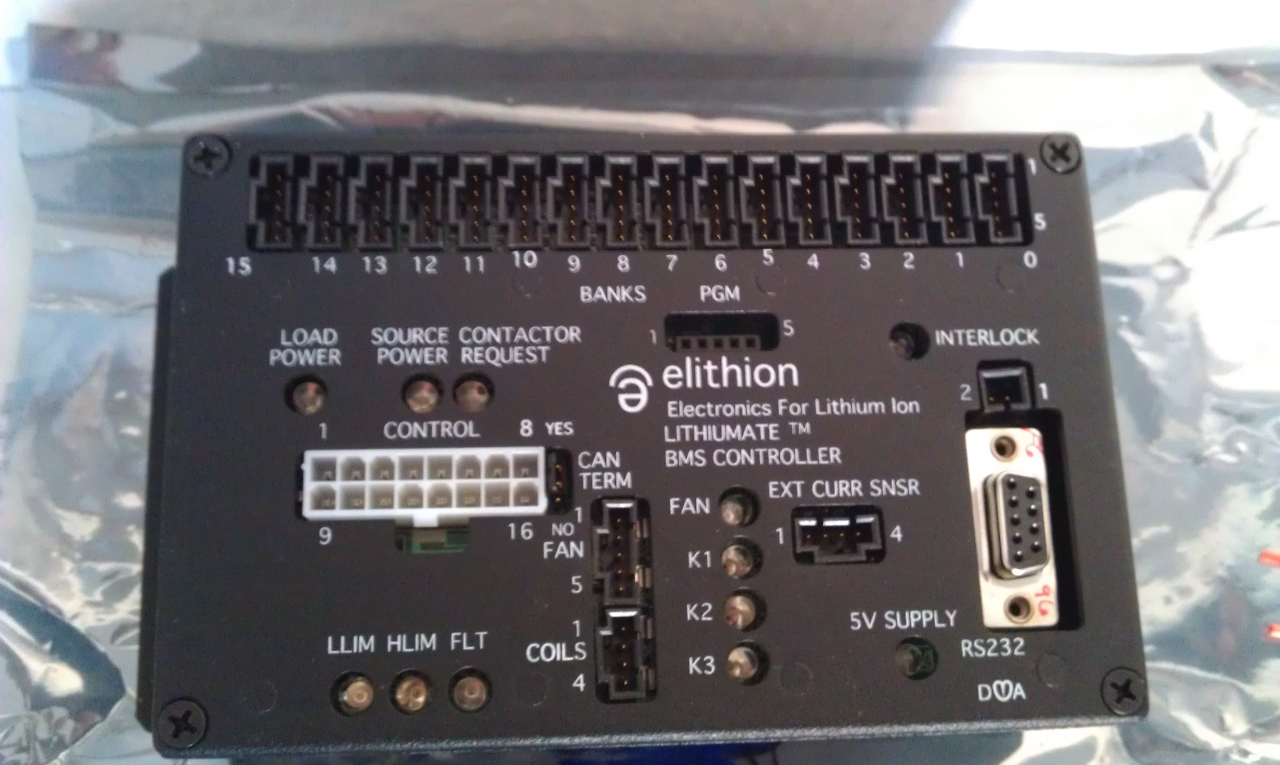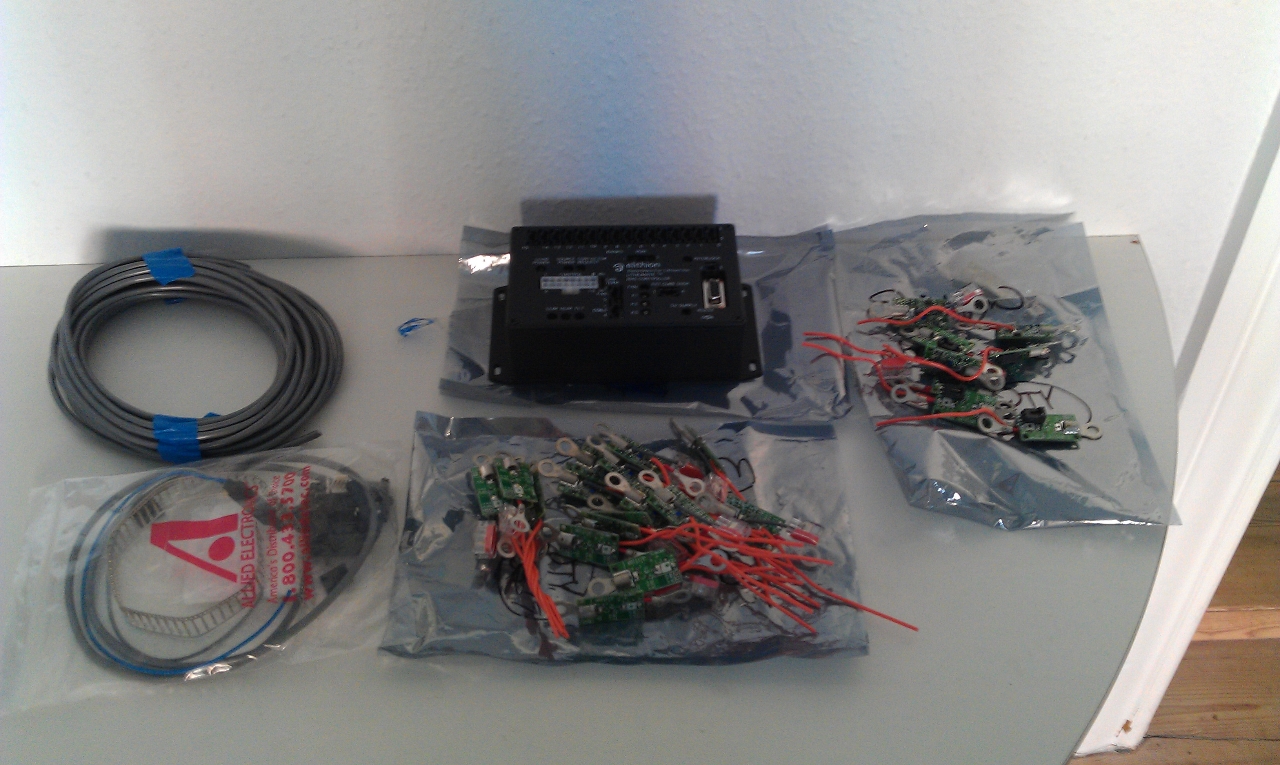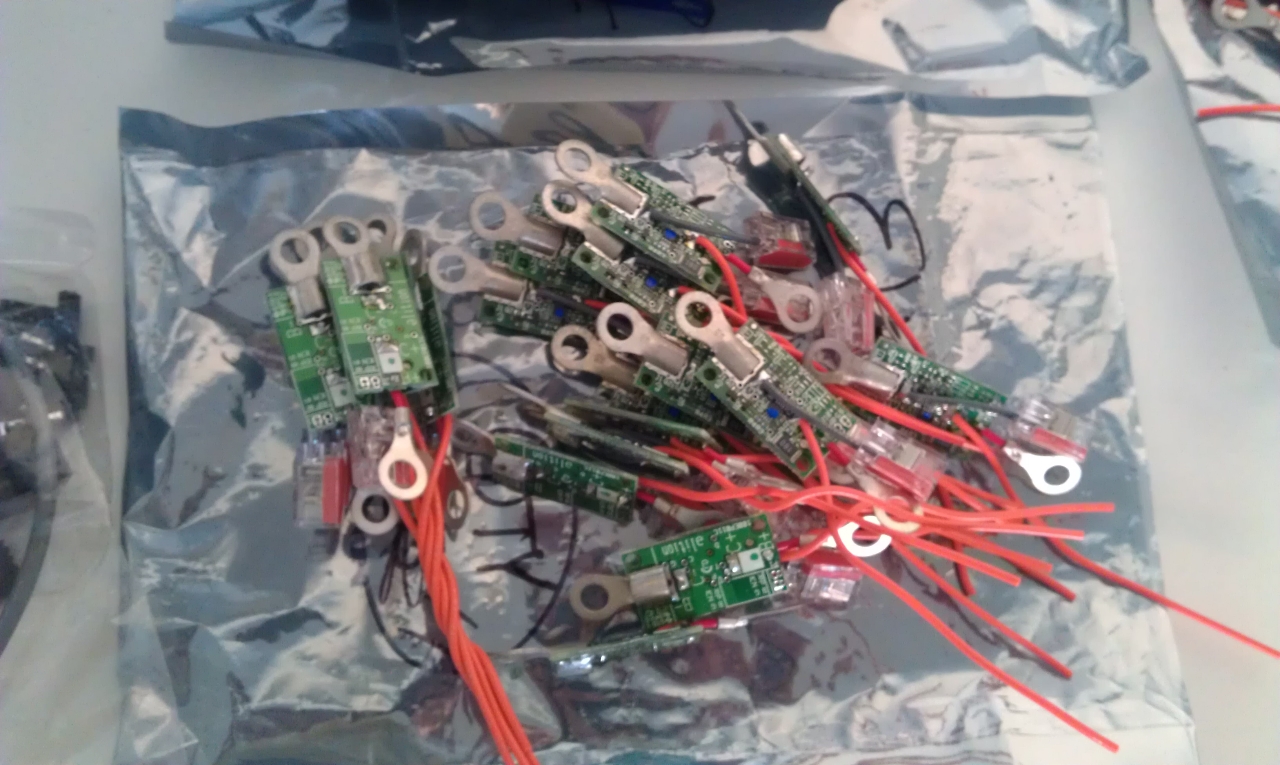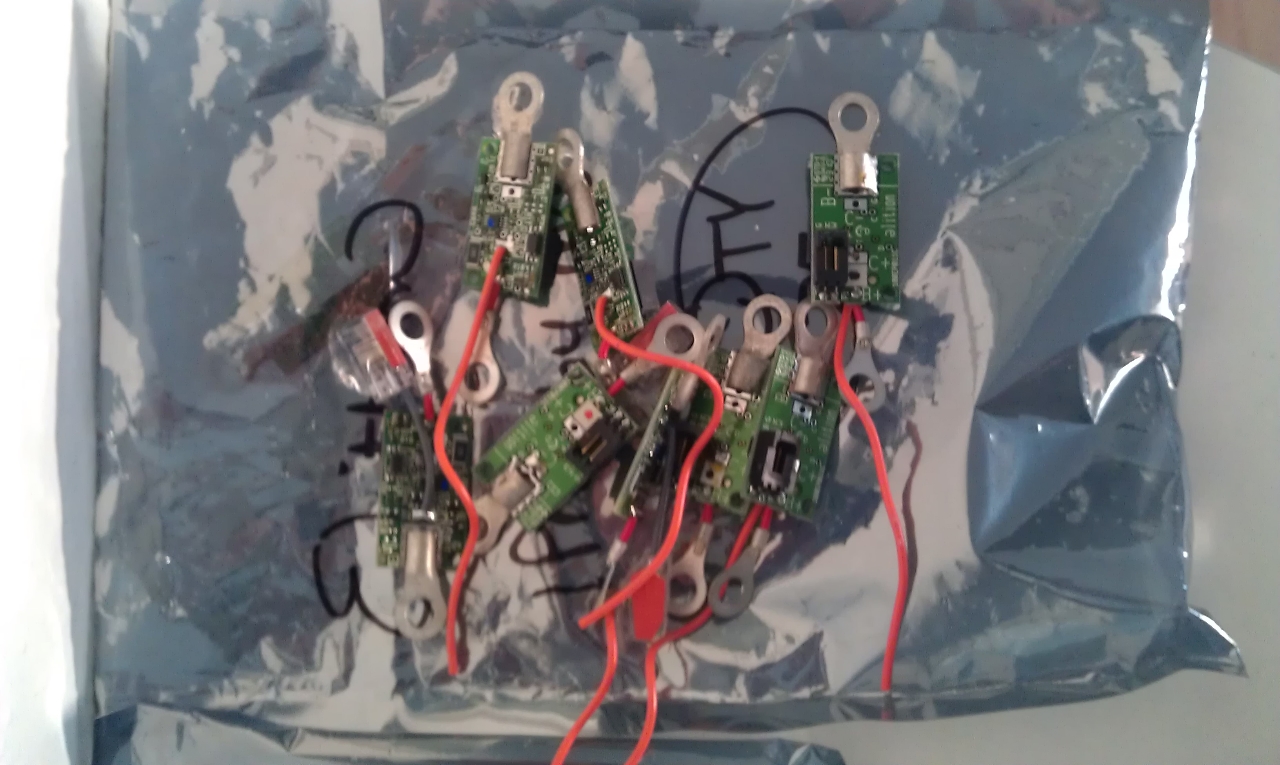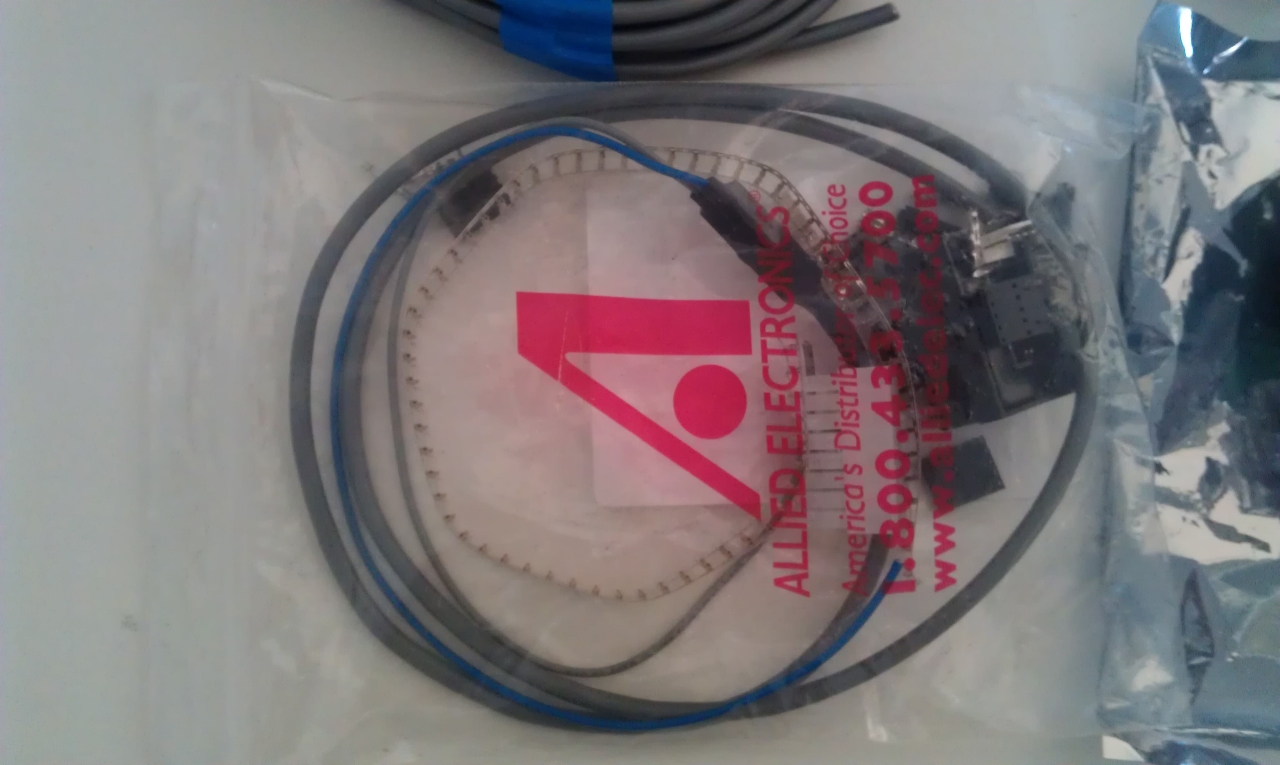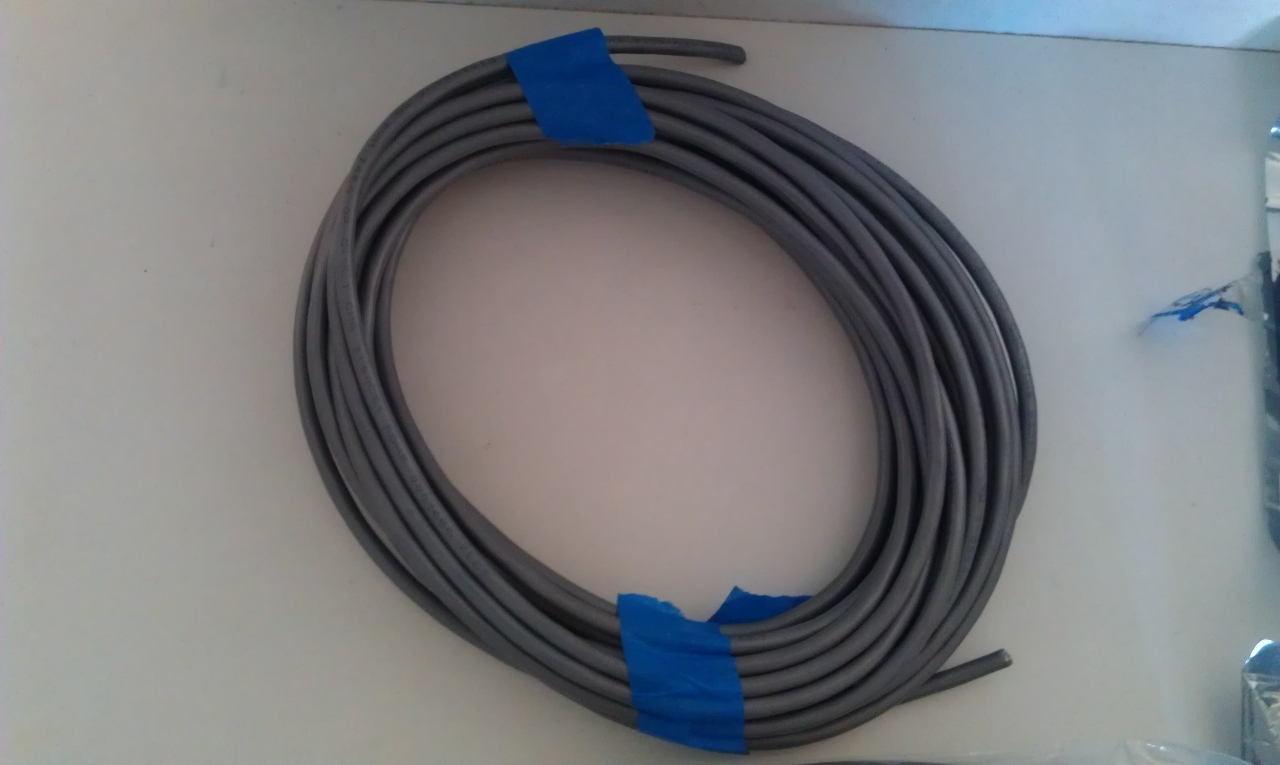We are using Elithion Lithiumate Pro as Battery manage system for our batteries.
Product overview from manufacture web site:
Lithiumate Pro BMS Overview
General description of the professional distributed Li-Ion BMS
Ideally matched to work in high power Li-Ion battery packs
- Up to 255 cells in series (~840 V), no limit to cells in parallel, isolated
- No limit to cells in parallel, up to 600 A (higher currents available)
- Includes contactor drivers, a cooling fan interface and an interlock input
Distributed: electronic assemblies are mounted on cells
- Mechanically matched with cylindrical, pouch or prismatic cells
- Minimal wiring (no “spaghetti”); individual cell voltage and temperature
- Controller communicates with Cell Boards on cells, and with external system
Ideally matched to Li-Ion cells
- Lithium-ion Polymer(LiPo)
- Standard lithium-cobalt-oxide (LiCoO2)
- Lithium-Manganese-Nickel-Cobalt (LiMnNiCo)
- Nano-phosphate / lithium-iron-phosphate / lithium-ferro-phosphate (LiFePO4)
- Lithium-manganese-oxide (LiMnO2)
- Not compatible with lithium-titanate cells (Altair Nano)
- Not compatible with lithium-sulfur cells (SIon Power)
Ideally matched to plug-in vehicles
- Compatible with most chargers, motor drivers
- CAN bus, ignition line input, 12V power
Performs monitoring, evaluation, communication, balancing and protection
- Monitors the voltage and temperature of each set of parallel cells, and the pack current
- Evaluates SOC (State Of Charge), DOD (Depth Of Discharge), and SOH (State Of Health)
- Calculates the pack’s internal resistance
- Determines appropriate CCL (Charge Current Limit) and DCL (Discharge Current Limit)
- Detects any abnormal conditions and sets a fault accordingly
- Communicates through a serial port and through a CAN bus, reporting above data
- Balances the charge through dissipation of excessive energy in most charged cells
- Protects against over and under-voltage, over and under-temperature, over-current
- Optional HV Front End tests for loss of isolation and end of precharge current (using a precharge resistor, not supplied)





